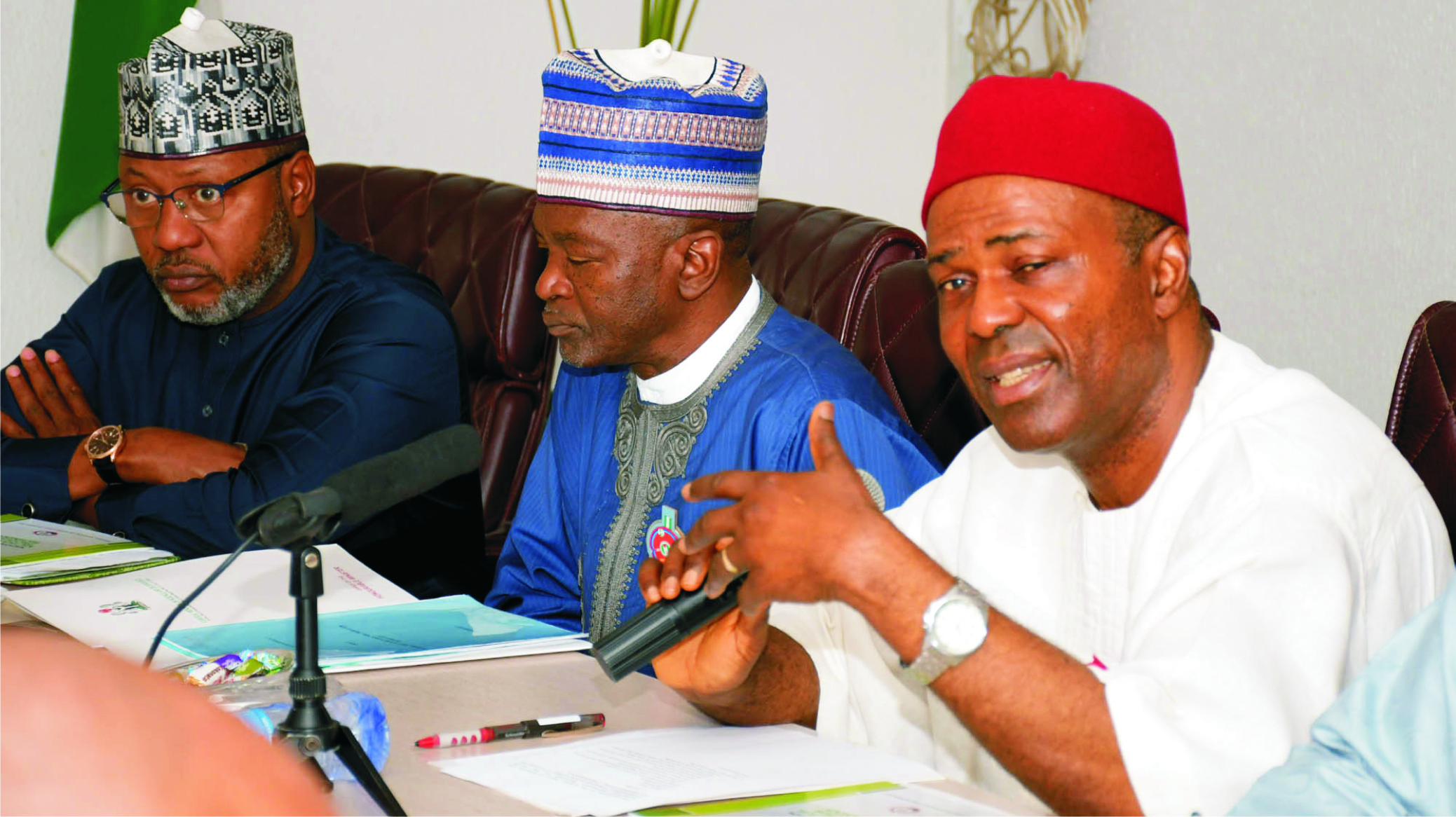Business
Implementation Of 7.5% VAT Begins, Feb 1

The Federal Government will from February 1 begin the implementation of 7.5 per cent Value Added Tax espoused by the finance law.
The law, according to the government will take effect after all the necessary administrative procedures must have been completed, especially the gazette of the Act by the Federal Ministry of Justice.
The Minister of Finance, Mrs Zainab Ahmed, confirmed the development in Abuja at the inauguration of the board of the Federal Inland Revenue Service, last Thursday.
She said the February 1 commencement date had put to rest every speculation regarding the take-off date of the new VAT regime.
The minister said once a bill is signed into law, it takes effect immediately, but noted that there were certain administrative procedures and formalities to be finalised before commencement.
The VAT increase which is meant to help government achieve its revenue projections for the 2020 budget is a part of the tax reforms included in the 2019 Finance Act.
She said with the Act, there would be more revenue to finance key government projects especially in the areas of health, education and critical infrastructure.
She said, “The implementation of the Value Added Tax is to take effect from February 1, 2020, after all the necessary administrative procedures have been completed, especially the gazette of the Act by the Federal Ministry of Justice.”
The minister’s remark however, contradicts an earlier claim by the Accountant General of the Federation, Ahmed Idris, who said the new VAT increment took effect from January 13 when the 2020 Finance Act was signed.
The minister told the members of the FIRS board that the responsibility bestowed on them was critical to the smooth operation of the various tiers and arms of government in Nigeria and, by implication, the well-being of the Nigerian people.
The newly appointed Executive Chairman of the FIRS, Mr Muhammad Nami, vowed to reposition the service for improved performance.
Nami said he would implement policies that would ensure maximum increase in tax revenue.
He said as tax administrators and custodians of the Nigerian tax system, the FIRS had a responsibility to implement all tax policies and laws in a manner that would ensure optimal benefits to the nation.
In achieving these objectives, he said his agenda to reposition the FIRS for better service to taxpayers would be anchored on four cardinal pillars.
These include rebuilding FIRS’ institutional framework by strengthening the capacity of departments and units to deliver on their mandates and robust collaboration with stakeholders to eliminate critical bottlenecks in the tax system.
Others are to build the FIRS into an institution that supports Nigeria’s longing to become an investment destination and to make the FIRS an agency in which its people, processes and technologies are all geared towards a clear goal.
In order to achieve these agenda, he said within the next three months, a lot of initiatives would be implemented.
Business
NCDMB, Dangote Refinery Unveil JTC On Deepening Local Content
Business
Food Security: NDDC Pays Counterpart Fund For LIFE-ND Project
Business
Replace Nipa Palms With Mangroove In Ogoni, Group Urges FG, HYPREP
-
Rivers4 days ago
NDDC: Staff Walk Ten Kilometers To Commemorate 25th Anniversary
-
Rivers4 days ago
VALVA Restates Commitment Education Advancement, Literacy In Nigeria
-
Politics4 days ago
Obey Order On AA In Six Days, Court Directs INEC, Yakubu
-

 Niger Delta4 days ago
Niger Delta4 days agoCancer Risk: HYPREP, IARC Launch Human Biometric Study in Ogoniland
-
Sports4 days ago
Oyibu predicts success for Team Nigeria at Athletics Championships
-
News4 days ago
Presidency Faults US Visa Restrictions On Nigerians, Demands Fair Treatment
-

 Politics4 days ago
Politics4 days agoPDP Still Formidable Ahead 2027 – Nat’l Youth Leader
-

 Niger Delta4 days ago
Niger Delta4 days agoCommissioner Explains Oborevwori’s Retirement Age Extentoon For Associate Profs

